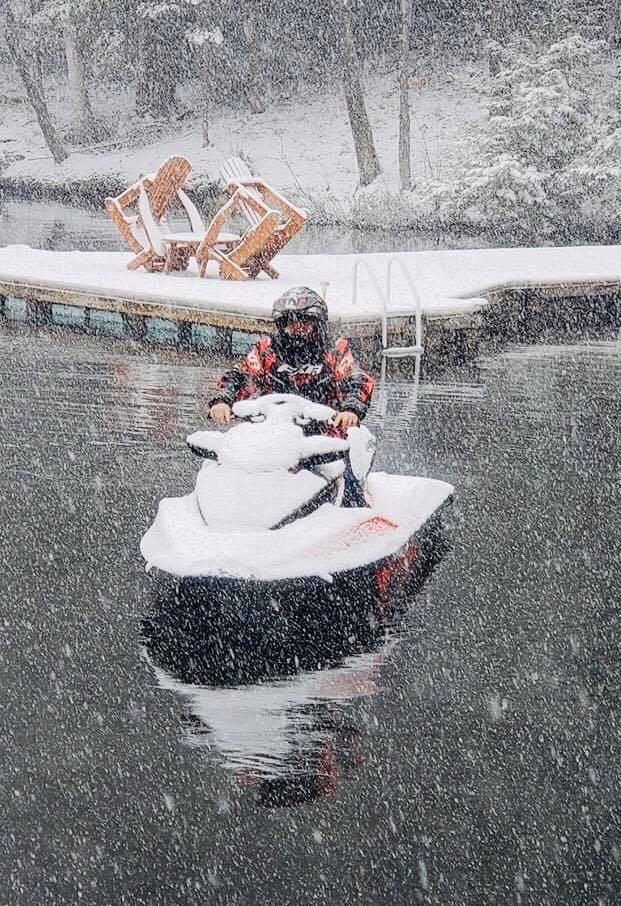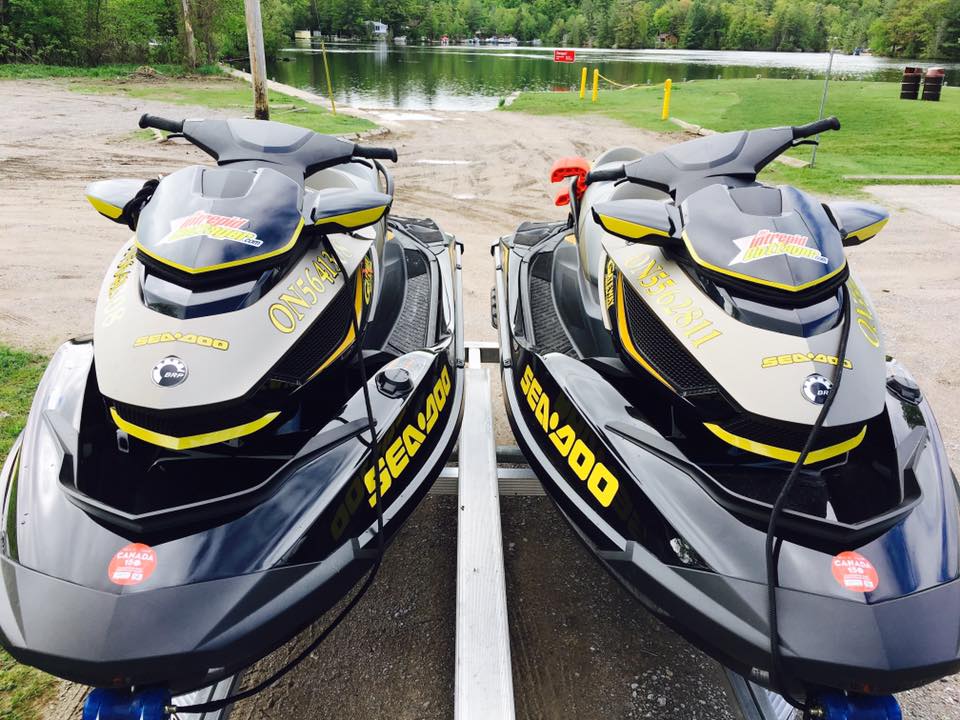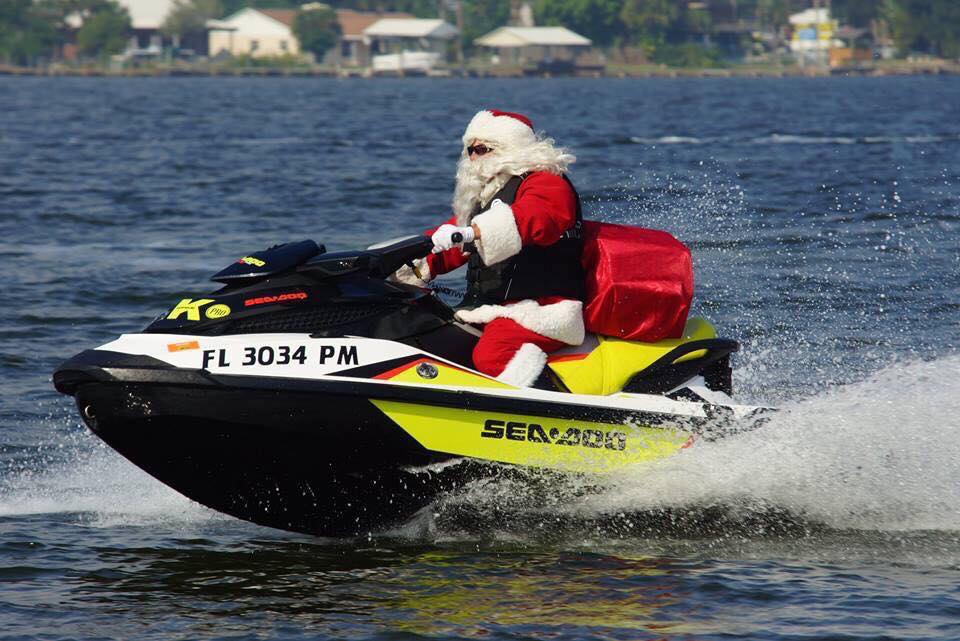6 Steps To Trouble-Free Jet SkiTrailering…

Photo courtesy of Al Fletcher
Related: Winterizing Your Jet Ski
Why should you take the time to do a thorough PWC trailer winterizing each fall? Reason one is to avoid premature deterioration resulting in unnecessary repairs or breakdowns on the road next summer. Reason two is to prolong the functional lifespan of your jet ski trailer for as long as possible by keeping it in tiptop condition. Number three is to make all your PWC adventures happen as planned. Bottomline though, it’s for your own peace of mind.

Photo © by Craig Nicholson
It’s all too easy to ignore your jet ski trailer. But remember that every time you tow, your fully loaded trailer is exposed to the many different conditions. Plus, it’s typically being immersed in water on every trip. So, there is plenty of opportunity to aggravate any pre-existing mechanical trailer issues or even to start new ones.
Unfortunately, many of these remain invisible or undetected until it’s too late. Towing while exceeding your trailer’s weight capacity or with too much (or little) tongue weight only makes things worse. What’s more, none of the emerging mechanical issues will go away on their own. If anything, inattention and improper storage for several cold months only make matters worse.
So, the best prevention is careful PWC trailer winterizing. Do it yourself or have a mechanic do the service for you.
Prevention starts with buying a good quality trailer like Triton, with built in reliability and durability. But remember, no matter what brand of trailer you own, it’s not a maintenance-free product. So after purchase, how trouble-free it is and how long it lasts is up to you!
Here are six crucial PWC trailer winterizing tips to help keep your hauler rolling trouble-free next summer on all your Sea Doo tours. And for many more to come…

When you see this guy riding, it’s time for PWC trailer winterizing!
Clean Your Trailer
Use a pressure washer to clean it all over with soap and water, preferably without PWC’s loaded. Make sure everything is dry before loading or storing, especially bunk carpet if so equipped.
PWC Trailer Winterizing Tip #1: Do Complete Inspection
Eyeball your trailer from top to bottom and especially underneath. This includes axles, springs and the backs of tire rims. Check everywhere for loose, out of place, broken or missing parts, or any that are showing undue wear. Don’t forget to check the winch and bunks for wear and tear. Fall’s the time to get your trailer repairs and parts replacement done, so you’re ready to go when the summer comes.
PWC Trailer Winterizing Tip #2: Service Bearings
Remember that bearings are dunked in water frequently. So, any moisture left in your bearings can start an issue that becomes a bigger problem during the next season. If your trailer has E-Z Lube style wheel hubs, pump in a high-speed, lithium-based grease to displace excess moisture.
For trailers without these hubs, repacking wheel bearings eliminates any residual moisture in them. This prevents condensation from rusting them while not in use. Do not mix different types of grease.
At the same time, grease any cam bars equipped with grease fittings. And don’t forget to grease the entire shaft of your tongue jack and the inside the gear mechanism at the top.
PWC Trailer Winterizing Tip #3: Lube Everything Else
Use a lightweight penetrating oil or rust protection lubricant to spray all hinges, pivot points and moving items.
PWC Trailer Winterizing Tip #4: Use Corrosion Protection
Apply an anti-corrosion product to all parts of the under frame of the trailer. Also be sure to mist items like the tongue, tongue jack, safety chains and coupler. Even if your trailer is aluminum, coat its frame, especially joints and fittings where metal components are in contact.

PWC Trailer Winterizing Tip #5: Store Your Trailer Properly
Once all these items are complete, park your trailer out of the sun in a dry area (inside if available, but preferably not on grass as this is a damp area that amplifies corrosion). If not, help preserve your tires by shielding them against sun rays and ice, but avoid fully encasing them in plastic which doesn’t allow air circulation.
Take the weight off the tires and suspension, especially if you are storing your personal watercraft on the trailer. Some owners even do this by setting the trailer up on blocks. This also acts as a good theft deterrent, but lock everything securely anyway (and don’t forget to lube the locks first). Also, remember to angle the trailer appropriately so any snowmelt will run off and not pool on your skis.
My Last Word
Nothing can prevent Murphy’s Law from rearing its ugly head occasionally. But certainly, these best tips for PWC trailer winterizing will go a long way to prevent being stranded by the roadside on a Sea Doo tour. Just to be double-sure, also follow my PWC trailer maintenance checklist throughout the season.
Credit: Thanks to Paul McNichol, owner of Alumite Enterprises, distributor of Triton Trailers, for contributing to this article.
If you enjoyed this post, check out my other riding tips.
The tips and advice in this article are the opinions of the author, may not work in every situation and are intended only for the convenience and interest of the reader, who has the personal responsibility to confirm the validity, accuracy and relevancy of this information prior to putting it to their own use.
